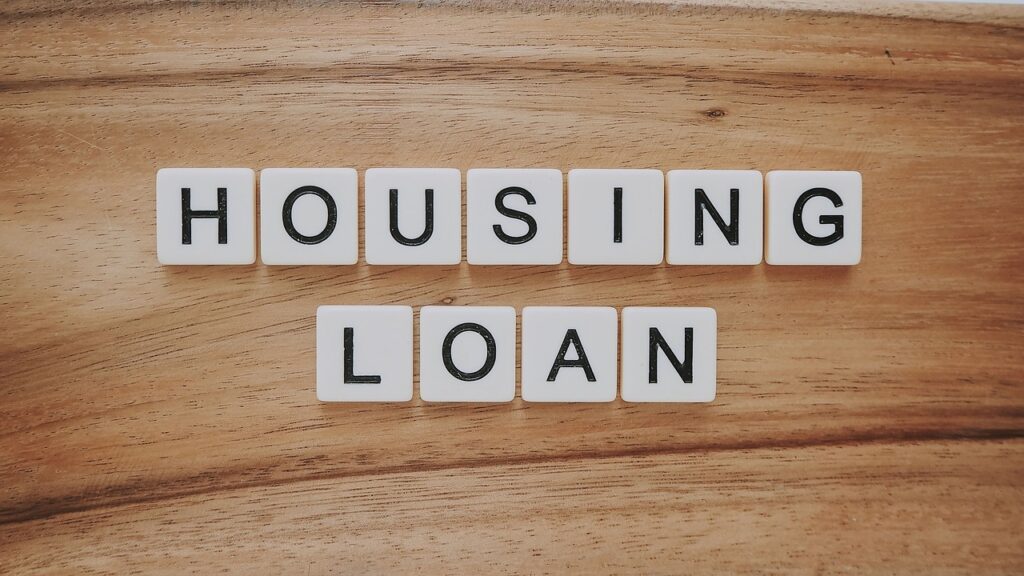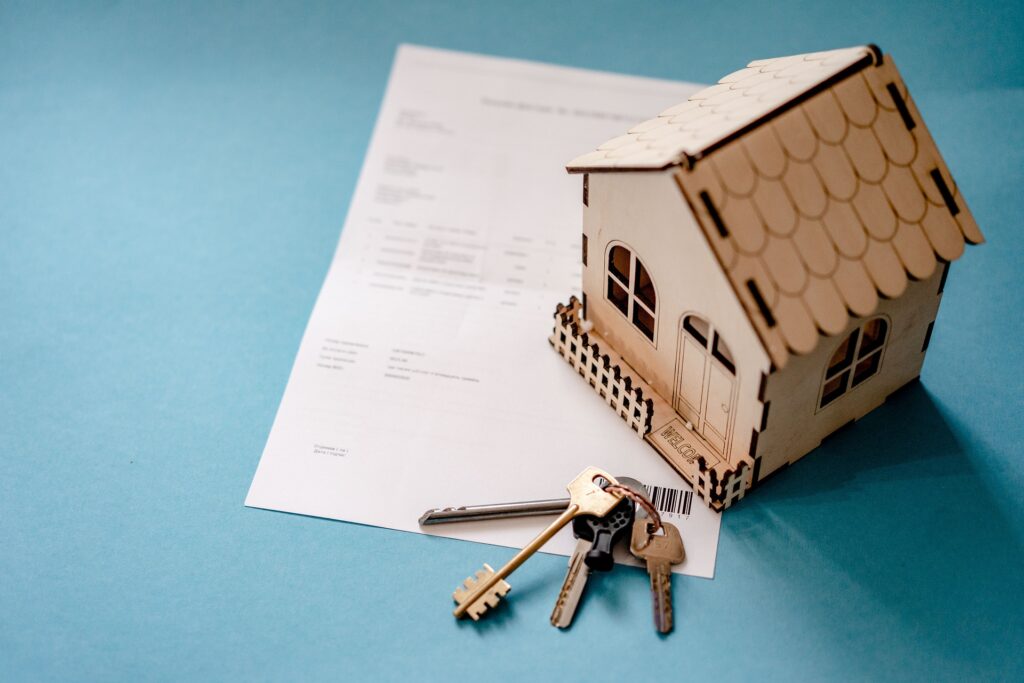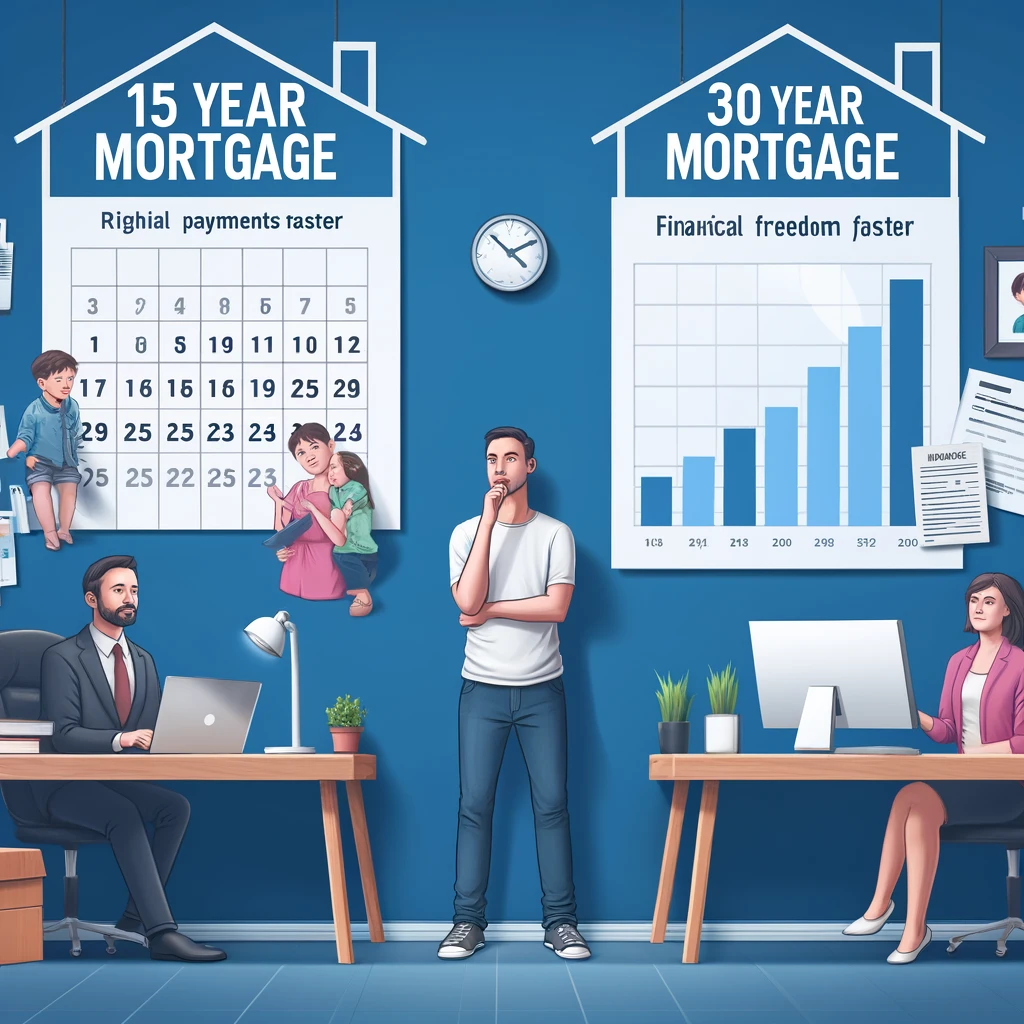Choosing the right mortgage term is a pivotal decision for prospective homeowners. It influences not only your monthly budget but also your long-term financial health. This detailed exploration into the “15 vs 30 year mortgage” will unveil the advantages and disadvantages of each, helping you to decide which mortgage term best fits your lifestyle and financial objectives.
What is a Mortgage?
A mortgage is essentially a loan secured by real property, typically structured over a long duration to make buying real estate more accessible for individuals. The borrower agrees to pay back the borrowed amount, plus interest, over a set period, which typically spans decades. The choice between a 15-year and a 30-year term is one of the most common decisions borrowers faces.

Interest Rate Comparison Table for 15 vs 30 Year Mortgages
| Mortgage Term | Average Interest Rate | Comments |
| 15-Year Mortgage | 2.75% | Lower rate due to shorter repayment period. |
| 30-Year Mortgage | 3.25% | Higher rate reflects longer risk period for lenders. |
What These Rates Mean for Borrowers
- Monthly Payments: The interest rate is a crucial factor in determining the monthly mortgage payment. Lower rates, as seen with the 15-year mortgage, mean less paid in interest monthly and over the life of the loan, but higher overall monthly payments due to the shorter amortization period.
- Total Cost of Interest: Choosing a 30-year mortgage with a higher interest rate results in lower monthly payments, which might be more manageable month-to-month but leads to paying more in total interest over the lifetime of the loan.
What Is a 15-Year Mortgage?
With a 15-year fixed-rate mortgage, you’ll pay off the loan in full by making regular payments over a 15-year period. This mortgage type typically offers lower interest rates compared to longer-term loans, meaning you could save substantially on interest payments. However, because the loan amortizes over a shorter period, the monthly payments will be higher.
Pros and Cons of a 15-Year Mortgage
Pros
- Faster Equity Buildup: One of the most significant advantages of a 15-year mortgage is the rapid pace at which you build equity in your home. This is because each payment includes a larger portion toward the principal balance.
- Lower Interest Rates: Generally, 15-year mortgages come with lower interest rates compared to 30-year loans. This not only reduces the amount you pay monthly but also decreases the total interest paid over the life of the mortgage.
- Less Total Interest Paid: With a shorter repayment term and lower interest rates, the total interest paid over the life of a 15-year mortgage can be considerably less than that of a 30-year mortgage, potentially saving thousands of dollars.
- Early Mortgage-Free Life: Paying off your mortgage in 15 years frees up significant monthly income sooner, which can be redirected towards retirement savings, investments, or other financial goals.
Cons
- Higher Monthly Payments: The downside to the shorter term is the higher monthly payment. This can put more pressure on your monthly budget and reduce your flexibility to allocate money towards other investments or savings.
- Opportunity Cost: The money tied up in higher mortgage payments could potentially be invested elsewhere with a higher return, especially in favorable market conditions.
- Qualification Challenges: Higher monthly payments might make it more difficult to qualify for the loan initially, as lenders scrutinize your debt-to-income ratio more stringently.

What Is a 30-Year Mortgage?
The 30-year mortgage, with its extended amortization period, remains the most popular mortgage choice among American homebuyers. It offers lower monthly payments spread out over a longer period, allowing for more manageable financial planning.
Pros and Cons of a 30-Year Mortgage
Pros
- Lower Monthly Payments: The most apparent benefit of a 30-year mortgage is the lower monthly payment. This makes homeownership more accessible for many people, as the reduced payment allows for better monthly budget management.
- Flexibility: Lower payments also mean more flexibility. You have the option to make extra payments when possible but are not locked into a higher payment during tougher financial times.
- Investment Opportunities: With the extra cash not tied up in your mortgage payment, you have the opportunity to invest in other areas. Whether it’s the stock market, retirement funds, or other investments, you may find greater long-term financial growth potential outside of your home equity.
Cons
- Higher Interest Rates: 30-year mortgages typically come with higher interest rates compared to 15-year mortgages. Over the decades, this can amount to a significant financial difference in the total interest paid.
- More Interest Paid Overall: Because of the extended repayment period and higher interest rates, the total amount of interest paid over the life of a 30-year mortgage can be significantly higher than that of a shorter-term mortgage.
- Slower Equity Growth: Equity builds more slowly in a 30-year mortgage because early payments are primarily interest rather than principal. This can be a disadvantage if you plan to sell or refinance in the shorter term.

Which One Should You Choose? 15 vs 30 Year Mortgage
The choice between a 15 vs 30 year mortgage depends largely on your financial situation and future plans. If you have a stable, higher income and wish to save on interest and pay off your home quickly, a 15-year mortgage might be best. Conversely, if you require more monthly budget flexibility or want to leverage your cash for other investments, a 30-year term might suit you better.
Conclusion
Understanding the pros and cons of 15 vs 30 year mortgage is crucial in making an informed decision that aligns with your financial goals and lifestyle. Both options offer distinct advantages, and the best choice depends on your personal circumstances, financial stability, and long-term financial planning. By carefully considering your options and consulting with a financial advisor, you can choose the path that best suits your needs, ensuring financial security and peace of mind as you embark on the journey of homeownership.
FAQs About Choosing Between 15 vs 30 Year Mortgages
What factors should I consider when choosing between a 15 and a 30-year mortgage?
Consider your current financial situation, long-term financial goals, and your tolerance for higher monthly payments.
How does my choice of mortgage term affect my retirement planning?
A shorter mortgage term frees up financial resources sooner for other retirement savings and investments.
You might be interested in reading related https://moneyymagnett.com/high-yield-dividend-stocks/

